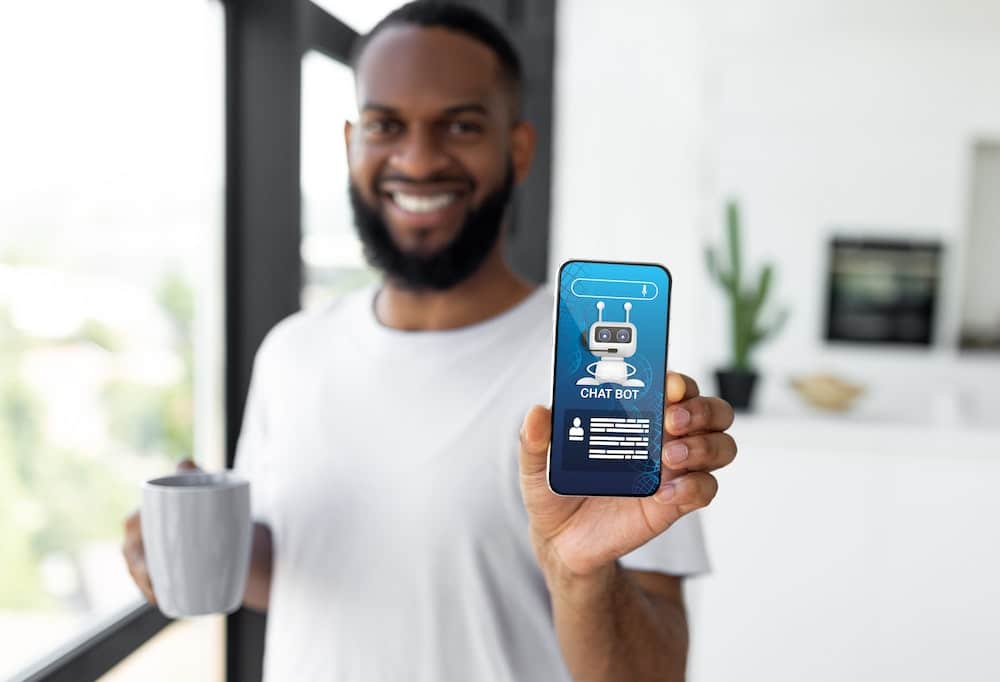How to Use Chatbots to Improve User Engagement on UK E-commerce Sites?

These days, the online customer experience is pivotal to the success of any business. In the UK e-commerce landscape, one of the most groundbreaking tools to enhance customer engagement is the use of chatbots. These AI-powered conversational interfaces are not only transforming the way businesses interact with customers but also redefining the scope of online marketing. This article will delve deep into the world of chatbots, focusing on how their strategic use can elevate user engagement and propel the growth of e-commerce businesses in the UK.
The Power of Conversational Commerce
Conversational commerce is a term coined to describe the fusion of shopping and chatting. This concept is reshaping the e-commerce industry by introducing a new level of personalized interaction between brands and customers.
Avez-vous vu cela : How to Create a Zero-Waste Office Environment in the UK?
Chatbots, the champions of conversational commerce, are designed to mimic human conversation and help customers navigate through the buying process. They can answer queries, make product recommendations, guide customers through the purchasing process, and even upsell or cross-sell products – all within a single chat interface. This creates a seamless shopping experience that saves customers’ time and increases their engagement on the website.
The rise of chatbots signifies the shift from traditional, transaction-based e-commerce to a more interactive and personalized online shopping experience. By leveraging chatbots, businesses can engage customers in meaningful conversations and turn them into loyal brand advocates.
A lire aussi : How Can UK Restaurants Utilize Big Data to Predict Consumer Behaviour?
Leveraging Chatbots for Customer Service
Customers expect prompt and accurate responses to their queries, and chatbots can provide exactly that. They are available 24/7 and can handle multiple customer queries simultaneously, ensuring that no customer is left waiting.
Chatbots can be programmed to answer frequently asked questions (FAQs) about a product or service, provide shipping updates, and even handle returns or exchange requests. They can also escalate complex issues to human agents, ensuring a smooth customer service experience.
Moreover, chatbots can leverage customer data to deliver personalized responses. For instance, they can refer to past interactions to provide product recommendations or offer tailored solutions to problems. This level of personalized customer service can lead to enhanced customer satisfaction and increased user engagement.
Enhancing User Engagement with Chatbots
Engaging customers is no longer just about showcasing products or services. It’s about providing a memorable shopping experience that customers find enjoyable and satisfying.
Chatbots can actively engage customers by initiating conversations, asking for feedback, and suggesting relevant products. They can also gamify the shopping experience by offering quizzes, contests, or rewards.
Furthermore, by analyzing customer data, chatbots can understand customer preferences and behaviors. This valuable insight can help businesses personalize their marketing efforts and create content that resonates with their customers, driving user engagement.
Chatbots as Marketing Tools
Chatbots are not just customer service agents; they are also powerful marketing tools. They can deliver personalized marketing messages based on customer data, leading to higher conversion rates.
Chatbots can also be used for lead generation. By asking a series of qualifying questions, they can identify potential customers and gather their contact information. This data can be used to nurture leads and convert them into customers.
Moreover, chatbots can assist in retargeting efforts. For instance, they can remind customers about abandoned carts or suggest similar products. This not only increases the chances of sale but also keeps the brand on top of the customers’ minds.
The Future of Chatbots in E-commerce
The evolution of chatbots is far from over. With advancements in AI and natural language processing, chatbots are becoming more sophisticated and conversational.
In the future, chatbots could even replace apps and websites as the primary interface for e-commerce. Customers could complete their entire shopping journey, from product discovery to checkout, within a chat interface.
Moreover, as more businesses adopt chatbots, customers will come to expect this level of service. Businesses that fail to adapt may find themselves at a competitive disadvantage.
In conclusion, chatbots are revolutionizing the e-commerce landscape by enhancing user engagement and personalizing the shopping experience. By leveraging chatbots, businesses can not only meet but exceed customer expectations, leading to increased customer loyalty and revenue growth.
Fine-tuning the Customer Journey with Chatbots
Digital marketing strategy in the e-commerce space has seen a paradigm shift with the advent of chatbots. Businesses are now using chatbots not just to drive customer engagement but to also fine-tune the entire customer journey.
From the moment a customer lands on your website, the chatbot can guide them through the various stages of their shopping experience. They can help customers find products, answer queries, provide detailed product information and even help them compare different products or services. Customers can get all the necessary guidance and support without having to leave the chat interface, thus creating a seamless shopping experience.
Chatbots can also be used to nurture customer relationships after the purchase. They can send out personalised thank you messages, provide information on how to use the product, or offer after-sales support. They can also gather feedback to understand how the customer found their experience, and use this data to further improve their service.
In addition, chatbots can help reduce cart abandonment rates. If a customer adds a product to their cart but fails to complete the purchase, the chatbot can send out reminders or offer incentives to encourage the customer to complete the transaction. This proactive approach not only improves conversion rates, but also boosts customer loyalty and retention.
How Chatbots Help Improve Customer Satisfaction
Customer satisfaction is a key determinant of a business’s success in the hyper-competitive e-commerce landscape. Chatbots can play a crucial role in enhancing customer satisfaction by providing real-time, round-the-clock customer support.
Unlike human agents, chatbots can be available 24/7, providing instant responses to customer queries. They can handle multiple queries simultaneously, thus reducing wait times and improving the overall customer experience.
Chatbots can also be programmed to provide personalised responses based on customer data. They can refer to past interactions to understand the customer’s preferences and needs, and provide solutions that are tailored to them. This personalised approach not only solves the customer’s problem but also makes them feel valued, thus boosting their satisfaction levels.
Moreover, chatbots can escalate complex issues to human agents, ensuring that customers always get the best possible service. By handling routine queries, chatbots free up human agents to focus on more complex tasks, thus improving the efficiency of your customer service department.
Conclusion
In the UK e-commerce landscape, chatbots have emerged as a powerful tool for engaging customers and enhancing their online shopping experience. By providing personalised, real-time customer service, these AI-powered conversational interfaces are helping businesses not just meet but exceed customer expectations.
The power of conversational commerce lies in its ability to create a seamless and interactive shopping experience. Chatbots help businesses leverage this power by initiating conversations, answering queries, making product recommendations, and guiding customers through the purchasing process.
Moreover, chatbots can also be used as effective digital marketing tools. They can deliver personalised marketing messages, assist in lead generation and retargeting efforts, and even help reduce cart abandonment rates.
The future of e-commerce is set to be dominated by chatbots. As advancements in artificial intelligence and natural language processing continue, chatbots are becoming more sophisticated and conversational. Businesses that leverage this technology stand to reap significant benefits, including improved customer engagement, increased customer loyalty, and revenue growth. Those that fail to adapt risk being left behind. Therefore, the strategic use of chatbots is no longer an option but a necessity for businesses looking to stay ahead in the competitive e-commerce landscape.
